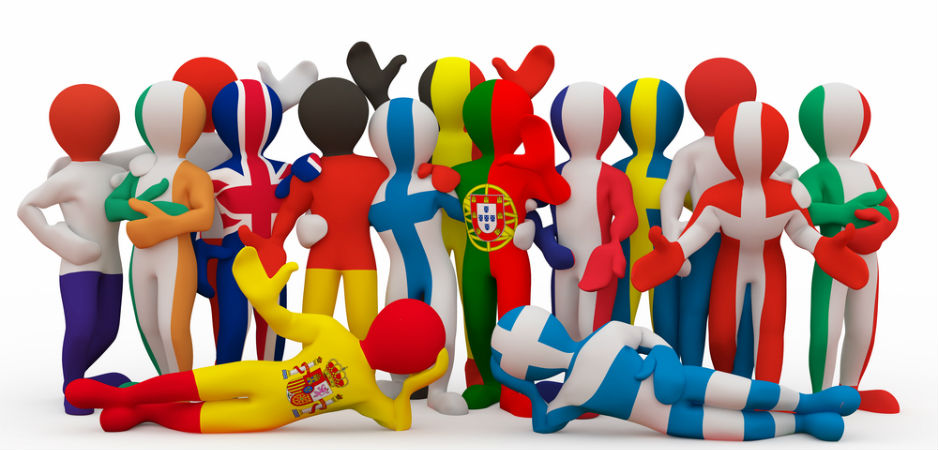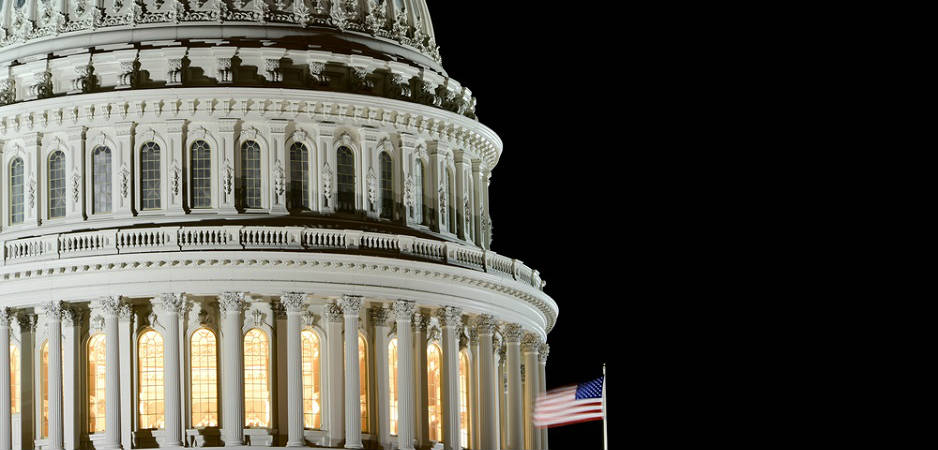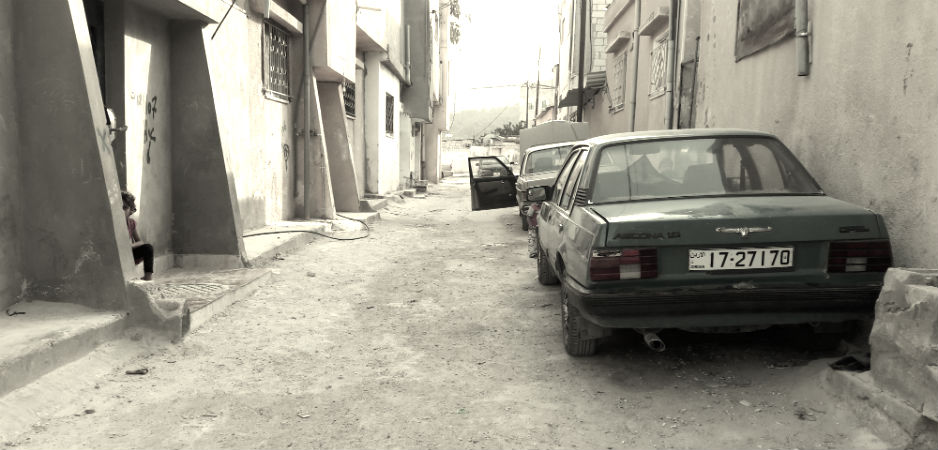Angry alienated people and England’s public school elite combine to win the Brexit referendum, creating an existential crisis for the UK and the EU.
On February 21, this author analyzed the United Kingdom’s tortuous relationship with the European Union (EU) and predicted that the referendum on Brexit would be “a damn close-run thing.” In a week when Colombians concluded a peace deal after 52 years of fighting and the International Monetary Fund (IMF) warned the US over high poverty, 71.8% of British voted in a referendum to leave or remain in the EU. Of the over 30 million who cast their ballots, 52% voted to leave.
Since then, British Prime Minister David Cameron has declared he is quitting. Civil war looms in the Conservative Party for its heart and soul. Full-scale war has already broken out in the Labour Party with dismissals and mass resignations among the top leadership. Labour rebels believe Jeremy Corbyn, their party leader, ran a lackluster campaign to remain in the EU. They have lost confidence in him and want him out.
After the referendum, the pound fell and markets plunged. On June 24, The Guardian reported that Brexit panic wiped $2 trillion off world markets. The “animal spirits” that John Maynard Keynes once talked about have turned panicky. London along with New York remains one of the two centers of global capital, and such a dramatic disruption of the status quo has spooked both buyers and sellers who tend to crave certainty and stability.
The effects of the referendum extend far beyond British political parties and markets worldwide. At stake are two entities: the UK and the EU. Both now face existential threats.
For those who are not British, the UK is the United Kingdom of Great Britain and Northern Ireland. England, Scotland, Wales and Northern Ireland remain distinct nations. The English rule the roost in the UK, but Welshmen like David Lloyd George and Scotsmen like Gordon Brown have been able to ascend to the pinnacle of power every now and then. The UK was created like almost every other nation state through “blood and iron.” The Scots, the Welsh and the Irish were the first to be colonized by the English who created a new British identity with unifying flags, currency and royalty to hold their realm together.
For much of the last 300 years, the English and the Irish have had not been the best of friends. Peace in Northern Ireland is a rather recent phenomenon. The Scots have been restive too. Less than two years ago, 84.6% of the Scots turned out to vote in a referendum on independence. Of the over 4 million who voted, 55.3% opted to stay in the UK. In the Brexit referendum, 62% of Scots voted to stay in the EU. Clearly, the two nations no longer see eye to eye on a key issue.
Unsurprisingly, First Minister Nicola Sturgeon has declared that Scottish Parliament could veto Brexit. Adam Irvine, a Scotsman educated in Oxford in a tradition going back to Adam Smith, voted for Scotland to remain in the UK in 2014. On the day after the EU referendum, he changed this tune and declared: “Yesterday I was Scottish and British. Today I am a Scottish and European.”
 Those in Northern Ireland also voted to stay in the EU, although by a smaller majority of 55.8%. Sinn Fein, the party representing Catholics, has already called for a border poll on a united Ireland as part of the EU. The Protestant Democratic Unionist Party backed Brexit and wants to stay on in the UK. The vote to leave the EU has reopened old wounds that go back centuries. The Good Friday Agreement of 1998 that led to stumbling but steady progress to peace in Northern Ireland is now in peril.
Those in Northern Ireland also voted to stay in the EU, although by a smaller majority of 55.8%. Sinn Fein, the party representing Catholics, has already called for a border poll on a united Ireland as part of the EU. The Protestant Democratic Unionist Party backed Brexit and wants to stay on in the UK. The vote to leave the EU has reopened old wounds that go back centuries. The Good Friday Agreement of 1998 that led to stumbling but steady progress to peace in Northern Ireland is now in peril.
The good news for those who want to keep the UK together is that 52.5% of the Welsh voted to leave. The bad news is that England’s most dynamic places such as London, Bristol, Oxford and Cambridge voted to remain. About 75% of those under 25 voted to remain with 61% of those over 65 opting to leave. About 71% of those with a university degree voted to remain, whilst 66% of those with a high school education voted to leave.
As Timothy Garton Ash, an Oxford don and self-proclaimed English European, observes, England is “a house divided against itself: London and the rest, rich and poor, young and old.” Holly Baxter has declared that it’s time for London to leave the UK and stay in the EU. This is not just sentimental nonsense. Baxter is onto something important. Collective identities are in question in an age of economic inequality. If you are from Barcelona, are you a Barcelonés, a Catalan, a Spaniard or a European?
The European nation state that straddles the globe is a rather recent phenomenon and could unravel in the 21st century as metropolises clash with hinterlands.
Brexit marks the dawn of a brave new world. Rachel Carrell, a Kiwi who came to Oxford as a Rhodes Scholar and stayed on in London, rightly points out that “the broad political consensus of the 1990s and 2000s is over.” Like many, she points out that globalization has produced both winners and losers. Free movement of goods, services and people is wonderful if you have capital or relevant skills. You can wear Italian silk ties, hire Indian virtual assistants and recruit Russian math wizards to work for you. If you have capital, you can invest anywhere anytime in anything. If you don’t have capital or relevant skills, then you compete with the hundreds of millions for serving coffee, teaching yoga or giving massages. Prospects of employment are bleak, jobs pay little and you cannot rely on a broader community.
Many such impoverished people live in the once coal mining Welsh heartland and the dilapidated post-industrial towns of Northeast England. They may not have jobs or prospects, but they have the right to vote. In the words of an unhappy Londoner, it was these “swamp monsters” in places like Wales, Cornwall and elsewhere who turned out to vote. He is of the view that it is their rage that feeds the odious United Kingdom Independence Party (UKIP).
Now, Johnson will have to reconcile his posh supporters who want free trade with Farage’s great unwashed who want to stick it to both elites and immigrants.
Immigration also fuels rage among les sans culottes. The Migration Observatory at Oxford records that the foreign-born population in the UK more than doubled between 1993 and 2014. This rise in numbers from 3.8 million to around 8.3 million put pressure on public services such as schools and hospitals. Since 2008, real wages for the average worker have fallen by almost 10% even as a housing shortage has been driving property prices ever upward. Elites in London and Brussels along with immigrants from Poland and South Asia naturally get blamed.
Lest we jump to conclusions, it was not just the hoi polloi who voted to leave. The Leave camp was led by Boris Johnson, an Old Etonian, a classicist, a former president of the Oxford Union, a Conservative member of parliament and the former mayor of London. Michael Gove, Boris’ trusty Sancho Panza, is also a former president of the Oxford Union. Even Nigel Farage, the UKIP leader, went to a public school that, incongruously in England, means an expensive school for the upper and upper middle classes.
So, what is going on?
History matters. England is a land of tradition and continuity. Apart from Charles I who was beheaded, England’s upper classes have reformed in the nick of time to avoid revolution. It has a tradition of lively debate that continues to this day. As this author has written earlier, both Karl Marx and Prince Metternich fled Europe to make England their home. In the words of Ash, England has escaped “the formative 20th century European experiences of war, defeat, occupation and fascist or communist dictatorship.” English schoolboys at Eton, Winchester, Westminster and other public schools grow up reading how this doughty island wrecked the Spanish Armada, defeated Napoleon at Waterloo and won the Battle of Britain. They see themselves as eccentric individualists combining critical reasoning and witty eloquence in contrast to superstitious Italians, fragile Frenchmen and rigid Germans.
As per Ash, when the English decry European laws overriding their own, they are echoing Henry VIII’s 1533 Act in Restraint of Appeals to Rome that famously declared “this realm of England is an empire.” This memory burns strong. An Englishman of the Leave camp told this author that he would prefer Indian and South African doctors to Italian or Polish ones. He believes that even those from the Commonwealth countries have been schooled in English traditions and have more in common with the mother ship than those pesky Europeans. He has a point.
Henry VIII broke off from Rome and Elizabeth I continued that tradition. To this day, the reigning monarch is the head of the Church of England to which both faithful Cameron and philandering Johnson belong. The Scots who voted to remain in the EU are of Presbyterian heritage with philosophical roots in John Calvin’s Geneva. The Catholics of Northern Ireland who voted like the Scots still owe allegiance to Rome and not to Elizabeth II.
The English owe their allegiance to no one but themselves. They see themselves as a great civilizing force, the pioneers of democracy and the creators of the modern global economy. They are primus inter pares in the Commonwealth and commemorate how the English, the Scots, the Irish, the Welsh, the South Africans, the Australians and even the Indians fought the Germans at the brutal and bloody Battle of Somme.
As this author observed earlier, the UK refused to join the Treaty of Rome in 1951. It only joined the European Economic Community (EEC) in the 1970s when the British economy was on its back. Even Margaret Thatcher campaigned to join the EEC in 1975 referendum and, in a stirring speech, declared she was grateful that her children “have not been embroiled in a European conflict as were the children of the previous two generations.” Much water has flowed down the Thames since. The EEC is now the EU with fluttering flags, shiny steel buildings and an infamous bureaucracy.
The UK joined the EEC and not the EU. It never really bought into the idea of the EU but kept muddling through. After the Berlin Wall came down, the prospect of German unification brought back ghosts from the past. It also sowed seeds of chaos for the future. Jacques Delors, a socialist and a Catholic in the grand dirigiste French tradition going back to Jean-Baptiste Colbert, pushed through the Maastricht Treaty in 1992, which led to the creation of the euro. The idea was to lock Germany into the heart of Europe. Thatcher detested Dolors’ vision for Europe and turned against the EU, a classic case of buyer’s remorse. The late prime minister is a patron saint of many who have voted to leave the EU. Johnson, Gove and most euroskeptic Conservatives are her political children.
In 2016, the monetary union Thatcher opposed and that Delors hastily pushed through has led to disaster. European economies on the Mediterranean adopted the euro by fudging their accounts with a little help from Goldman Sachs. Then they borrowed merrily on low interest rates because investors were lulled by the euro, failed to do their due diligence and assumed that all eurozone economies were the same. When the bust inevitably arrived, the EU’s unelected priesthood in Brussels did not cover itself in glory and deepened economic misery for Mediterranean economies.
As this author observed a little less than a year ago, “the euro project is now in question.” As most of Europe languishes in deep recession, high unemployment and increasing immigration, far-right parties are on the rise from Hungary and Poland to France and the Netherland. With the UK voting to leave, the EU itself is now in question even in France.
Meanwhile, Johnson has joined Farage in declaring June 23 the UK’s independence day. Earlier this year, he argued that the UK must get rid of “the Nanny in Brussels” to reclaim its parliamentary sovereignty. He painted a bright picture for the UK, pointing out how the country “leads in many sectors of the 21st century economy” and is home to 17 out of the 40 technology companies in the EU worth more than $1 billion. Farage paints a parallel picture of ordinary people in distress, and UKIP draws support from areas in the greatest economic distress.
Johnson is a blustery Falstaffian character who once asserted that “French food was execrable.” He may be glib and economical with the truth, but Johnson is witty, charismatic, confident and eloquent. He was able to appeal to both reason and emotion when he argued for leaving the EU in The Telegraph. He knocked down the economic advantages of remaining in the EU by declaring: “[W]e used to run the biggest empire the world has ever seen, and with a much smaller domestic population and a relatively tiny Civil Service. Are we really unable to do trade deals?”
Now, Johnson will have to reconcile his posh supporters who want free trade with Farage’s great unwashed who want to stick it to both elites and immigrants.
Unlike Johnson, Gove, Farage and Co., those who wanted to stay in the EU never made a clear case for it. Tony Blair, the slick Europhile British prime minister, constantly dodged a debate on the idea of the EU. He couched the issue in technocratic terms of policy and modernization. In private, he delivered “withering criticism of the Eurosceptic press.” In public, “what got past his inner spin doctor was one short paragraph, so weaselly that it would have embarrassed even a self-respecting weasel.”
Cameron, Blair’s self-declared preternaturally self-confident heir, announced the referendum on the EU in a cavalier fashion but failed to address real fears of an angry populace. In February, he returned from Brussels, disingenuously claiming that the UK had a “special status” in the EU. The Europhile side lacked a Thatcher-like patron saint and its leaders lacked both conviction and cojones. Naturally, it lost.
Now, the various components of the UK have to figure out how to deal with the rest of the world and with each other. The high and mighty in Brussels have been given due notice by an angry populace to cut out dull declarations and what critics call “the farce of the EU travelling circus.” This is a time for courage and leadership to ensure that things don’t fall apart. It remains to be seen if an aging and anxious continent can respond with vim and vigor to the crisis Brexit has thrust upon it.
*[You can receive “The World This Week” directly in your inbox by subscribing to our mailing list. Simply visit Fair Observer and enter your email address in the space provided. Meanwhile, please find below five of our finest articles for the week.]
Brexit and Trump Are For Baby Boomers, Not Millennials
Millennials are not looking forward to the repercussions of bad decision-making by baby boomers, be it voting for Brexit or supporting Donald Trump.
Everyone knows the saying “stranger than fiction,” but in the past few months it seems to have taken a new meaning altogether. With Britain leaving the European Union (EU) and Donald Trump becoming the presumptive Republican nominee in the US presidential election, the world and all its shifting realities have finally started to look stranger than fiction. These strange times have been brought about and almost accentuated by the politics of hate and division over unity.
With the United Kingdom voting to leave the EU on June 23 and Trump calling it a “good thing,” one wonders if globalization and the era of peace are slowly but surely being undone by one political fiasco after another.
When we, as citizens, make important decisions like supporting a certain political candidate or deciding which issues matter to… Read more
The House Democrats’ Sit-In Was a Joke, But No One is Laughing
The House protest involved a serious issue worth fighting for, but it was a ploy by the Democrats to attack a divided Republican Party.
Two weeks after the deadliest massacre in recent American history, followed by a Senate filibuster and this week’s sit-in on Capitol Hill, I am reminded of pre-revolution France.
Before the storming of the Bastille, the poor met in dark tenement cellars and the filthy Parisian alleys behind the glittering palaces. “The bread is rising” was the password to these meetings, referring to the fermentation of the feverish and raw contents of revolt, as they readied to end a reign of oppression in France.
The analogy was used again in the 1960s to describe a movement of young black college students in America.
The initial sit-in occurred on February 1, 1960 in Greensboro, North Carolina. Four black male students from North Carolina Agricultural and Technical College left the cool of a fall Carolinian… Read more
Turkey’s EU Dream is Dead on Arrival
Is Brexit the final nail in the coffin of Turkey’s longstanding bid to accede to the European Union?
Among the bewildering array of grim predictions and shady statistics that characterized the British referendum of membership of the European Union (EU) was one truly breathtaking claim. It came from the campaign literature of the United Kingdom Independence Party (UKIP) and the Vote Leave movement, and it stated that if the UK stayed in the EU, one key danger would be the accession of Turkey “by 2020.”
This claim was astonishing on many counts. Not only has Turkey’s accession bid been stalled now for a number of years, with interest in the project diminishing markedly within Turkey itself, but the main driver for its curtailment has been anti-Turkish sentiment within Europe.
Ironically, given the picture painted by UKIP and the Leave camp, the main obstacle to Turkish accession is anti-Turkish and broader anti-Muslim sentiment within the French and Austrian states… Read more
America Has a Rape Problem
Every so often, a rape case like the one in Stanford will catch the public’s attention but then disappear.
On June 2, the Stanford University rape case ruling came in from Judge Aaron Persky. His ruling showed no empathy for the victim and showed extraordinary leniency to Brock Turner, the perpetrator who has expressed no remorse over his actions. In fact, Turner’s father characterized his behavior as “20 minutes of action.”
A shocked nation and world swung into frenzied action. Outraged against Judge Persky’s ruling, more than 1 million people globally signed a petition calling for his recall. In Santa Clara County, Persky’s recall motion is being led by a Stanford law school professor hoping to get the 60,000 signatures needed for the recall to proceed.
I don’t know what will come of it—perhaps Judge Persky will indeed lose his position in disgrace. Or not. But make no mistake about it: This outrage too shall pass… Read more
Refugees Suffer the Monster of Our Indifference
The people who suffer the most at the hands of our monsters are the ones we do not care to see, says Maria Khwaja.
It is 3:50AM in Amman, Jordan. The call to prayer echoes across the city. I have just finished suhoor, the morning Ramadan meal. We are meant to be 30 minutes from the Syrian border today visiting refugees who live outside the camps. In over a decade of working in East Africa, the Middle East and South Asia, the worry that eats at me is always the same.
There are so many children. Children in the streets, children in overcrowded classrooms, children excitedly following us around and shouting muzungu, ajnabee, Amreekan. There are so many children.
I’ve seen it in Karachi, where bright-eyed Afghan children watched me from behind cement walls. In Jordan, we have already spent time being followed by dusty mobs of Palestinian children in Gaza Camp. One ramshackle playground, under the watchful eye… Read more
The views expressed in this article are the author’s own and do not necessarily reflect Fair Observer’s editorial policy.
Photo Credit: Maxx Studio / Shutterstock.com
 We bring you perspectives from around the world. Help us to inform and educate. Your donation is tax-deductible. Join over 400 people to become a donor or you could choose to be a sponsor.
We bring you perspectives from around the world. Help us to inform and educate. Your donation is tax-deductible. Join over 400 people to become a donor or you could choose to be a sponsor.
Support Fair Observer
We rely on your support for our independence, diversity and quality.
For more than 10 years, Fair Observer has been free, fair and independent. No billionaire owns us, no advertisers control us. We are a reader-supported nonprofit. Unlike many other publications, we keep our content free for readers regardless of where they live or whether they can afford to pay. We have no paywalls and no ads.
In the post-truth era of fake news, echo chambers and filter bubbles, we publish a plurality of perspectives from around the world. Anyone can publish with us, but everyone goes through a rigorous editorial process. So, you get fact-checked, well-reasoned content instead of noise.
We publish 2,500+ voices from 90+ countries. We also conduct education and training programs
on subjects ranging from digital media and journalism to writing and critical thinking. This
doesn’t come cheap. Servers, editors, trainers and web developers cost
money.
Please consider supporting us on a regular basis as a recurring donor or a
sustaining member.
Will you support FO’s journalism?
We rely on your support for our independence, diversity and quality.











